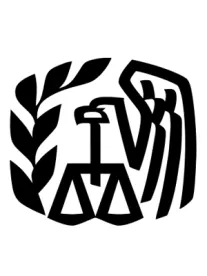The Internal Revenue Service just rolled out significant and immediate relief in Revenue Procedure 2016-47 for people who miss the 60-day rollover deadline (i.e., the deadline for completing a rollover when the rollover amount is first paid to the taxpayer before it is contributed to an eligible retirement plan or an IRA). If certain requirements are met, the new relief permits people to make a self-certification that they are eligible for a waiver of the deadline.
This relief is particularly welcome considering that in February the IRS dramatically increased the user fee for requesting a private letter ruling under Revenue Procedure 2003-16 to waive the 60-day rollover requirement to $10,000. As such, for many people with rollover problems where an automatic waiver was unavailable under Revenue Procedure 2003-16, it no longer made economic sense to even think about getting a waiver, since the income tax consequences of the rollover failure often would be less than the cost of the user fee plus the costs of preparing the private ruling request.
New Revenue Procedure 2016-47
Under the new Revenue Procedure, rather than applying to the IRS for a waiver of the 60-day period, an individual taxpayer now can self-certify to the plan administrator or IRA custodian that one or more of 11 specified reasons (listed below) for missing the rollover deadline apply. Provided that the individual also makes the rollover contribution to the plan or the IRA as soon as practicable after the certified condition no longer prevents the rollover (the deadline is deemed satisfied if the contribution is made within 30 days of when the condition no longer prevents the rollover), the plan administrator or IRA custodian may rely on the certification as a waiver of the 60-day rollover requirement. The new Revenue Procedure includes a model form for the self-certification, although a substitute form “that is substantially similar in all material respects” also may be used.
Importantly, all other requirements for a 60-day rollover must otherwise be met, and the plan administrator or IRA custodian cannot rely on the self-certification if it has actual knowledge that contradicts what was asserted in the self-certification. In addition, the self-certification does not bind the IRS, which on audit can challenge the individual’s eligibility for the waiver or timeliness of the rollover after the condition no longer exists.
Automatic waivers permitted under Revenue Procedure 2003-16 in certain situations where a rollover is not timely made due to financial institution error are still available. In addition, waivers are still available under Revenue Procedure 2003-16 through the current IRS private letter ruling request process, but this new Revenue Procedure eliminates the need for a private letter ruling in many typical situations—and notably avoids the costly $10,000 user fee.
Next Steps
If you have questions about how Revenue Procedure 2016-47 affects your retirement plan or IRA administration, please reach out to your Morgan Lewis contact. In the meantime, because the new Revenue Procedure 2016-47 is immediately effective, plan administrators and IRA custodians should be prepared to start receiving self-certifications on the following 11 circumstances almost immediately:
-
An error was committed by the financial institution receiving the contribution or making the distribution to which the contribution relates.
-
The distribution, having been made in the form of a check, was misplaced and never cashed.
-
The distribution was deposited into and remained in an account that the taxpayer mistakenly thought was an eligible retirement plan.
-
The taxpayer’s principal residence was severely damaged.
-
A member of the taxpayer’s family died.
-
The taxpayer or a member of the taxpayer’s family was seriously ill.
-
The taxpayer was incarcerated.
-
Restrictions were imposed by a foreign country.
-
A postal error occurred.
-
The distribution was made on account of a levy under § 6331 and the proceeds of the levy have been returned to the taxpayer.
-
The party making the distribution to which the rollover relates delayed providing information that the receiving plan or IRA required to complete the rollover despite the taxpayer’s reasonable efforts to obtain the information.




 />i
/>i
